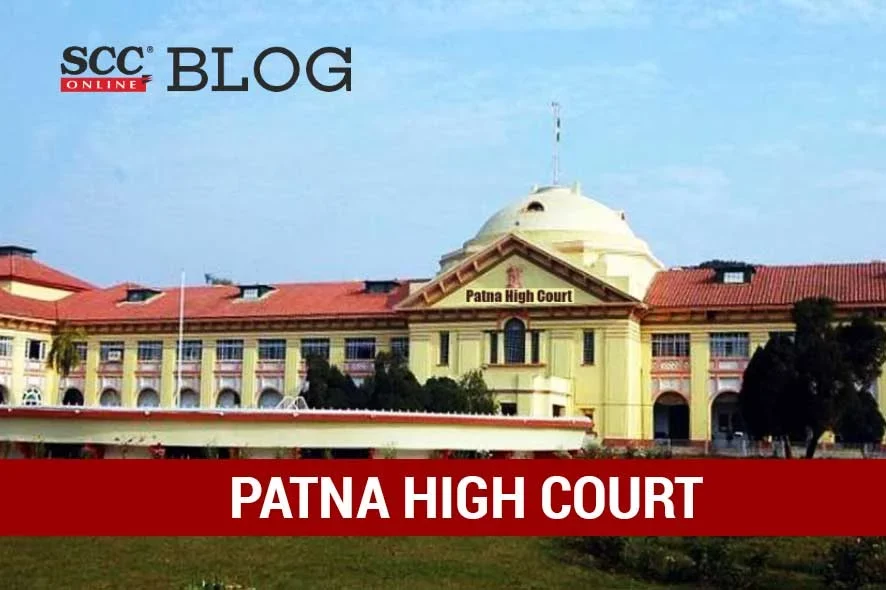Patna High Court: In an appeal filed by appellant, ACC Ltd. against the order of Commercial Taxes Tribunal, Bihar (‘the Tribunal’) wherein the Tribunal did not allow the adjustment of entry tax paid on damaged cement against value added tax liability (‘VAT liability’) under the provisions of Bihar Tax on Entry of Goods into Local Areas for Consumption, Use, or Sale therein Act, 1993 (‘the Act’), the Division Bench of K. Vinod Chandran, CJ.*, and Rajiv Roy, J., dismissed the appeal and held that the adjustment of entry tax paid on damaged cement against VAT liability was not permissible under the Act.
Background:
Appellant was a manufacturer and seller of cement across the country through its various sales unit, one of which was located at Patna and appellant was a registered dealer under the Bihar Value Added Tax Act, 2005 (‘the VAT Act’). Appellant imported cement into the State outside of Bihar by way of stock transfer to its depot at Patna and was sold within the city and other districts in the State. Appellant had appointed clearing and forwarding agents (‘C&F agents’) for warehouses situated in different towns within the State. In the assessment year 2010-11, appellant imported 10,12,535.90 MT of cement into the State from their manufacturing unit in Orissa, Chhattisgarh, and Jharkhand. In addition to freight paid to the railways and commission paid to the C&F agents, entry tax was also paid.
The audit team of the Commercial Taxes Department (‘the department’) found that the assessee had shown stock transfer from outside the State worth Rs. 45,12,63,567 in the annual return and total annual return (‘TAR’), and the total import value shown in entry tax payment (ET-V) was Rs. 527,56,05,041 which indicated concealment of Rs. 76,29,71,474. It was also found that the adjustment of entry tax paid on damaged cement was not admissible under the provisions of the Act.
The Tribunal held that the entry tax paid on damaged cement could not be adjusted from VAT liability, in the circumstances of the proviso to Section 3(2) of the Act which provided for such reduction of tax payable under the VAT Act only when the imported goods liable to pay tax under the Act, incurred tax liability within the State.
Analysis, Law, and Decision
The Court took note of Section 3(1) of the Act, which dealt with ‘Charge of Tax’ and imposed a tax on the entry of scheduled goods into a local area for consumption, use, or sale, aimed at fostering trade, commerce, and industry in the State at the rate of not exceeding 20% of the import value of goods. The Court further noted on Section 3(2) of the Act which made it mandatory that every dealer liable to pay tax under the VAT Act or any other person who imported scheduled goods into the local areas of the State independently or on behalf of a principal or took delivery or was entitled to take delivery of such goods, to the tax leviable under the Act.
The Court opined that the second proviso to Section 3(1) of the Act provided that the burden of proof lied on the importer if the assessee who imported scheduled goods contended that it was not imported for consumption, use or sale. Further, the second proviso of Section 3(2) of the Act provided that on payment of entry tax by the importer of schedule goods who was also liable to pay tax under the VAT Act, the liability stood reduced to the extent of tax paid under the Act. The set-off under the VAT liability would arise only when there was a liability incurred under the VAT Act and in case of no consumption, use or sale within the state, the burden of proof lied on the importer as to how the goods were disposed of.
The Court opined that the burden of proof regarding the disposal of imported goods lies on importer when the good were imported for any purpose other than consumption, use or sale within the State andif the goods had, in the form in which it was imported or in any other form, incurred a liability under the VAT Act, then the entry tax would be reduced from the liability incurred under the VAT Act. However, appellant provided no explanation regarding the disposal of damaged cement in question.
The Court relied on Associated Cement Companies Ltd. v. State of Bihar, (2004) 7 SCC 642, and opined that unless there was a liability incurred to tax, there could be no adjustment of entry tax and further opined that thus, appellant’s claim for exemption had failed.
[ACC Ltd. v. State of Bihar, 2023 SCC OnLine Pat 5441, decided on 30-11-2023]
*Judgment authored by: Chief Justice K. Vinod Chandran
Advocates who appeared in this case :
For the Petitioner: Ramesh Kumar Agrwal and Shive Kumar, Advocates
For the Respondents: Ajay Behari Sinha, G.A.8; Kalpana, AC to G.A.8; Vikash Kumar, SC-11






